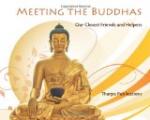There is a mutual helpfulness among animals which is very beautiful to see. They will come together for defence and to get food, and sometimes help each other in sickness and trouble. A blind swan was fed with fish brought twice a day by other swans from a lake thirty miles away. An English sparrow pluckily rescued his mate from a big snowdrift at the risk of his life. Livingstone tells of a wounded buffalo who was caught up on the strong shoulders of another buffalo and carried to a place of safety. The little mice in the meadow, and the birds upon the marshes, have learned that to be strong they must keep together and help each other. This is the law of all life.
When young people learn to think about the causes of pain and suffering, and to respect the rights of animals, they will soon learn to respect each other’s rights and to render this mutual aid.
John Bright, a noted English statesman, said: “If children at school can be made to understand how it is just and noble to be humane even to what we term inferior animals, it will do much to give them a higher character and tone through life.”
There are men and women who would be thankful if they could blot out some careless deed of their childhood. We may be sure that we shall never regret the kind things we have done. George Eliot says:—
“It is only a poor sort of happiness that could ever come by caring very much about our own narrow pleasures. We can only have the highest happiness, such as goes along with being a great man, by having wide thoughts and much feeling for the rest of the world as well as ourselves. ...If you mean to act nobly and seek to know the best things God has put within reach of men, you must learn to fix your mind on that end and not on what will happen to you because of it.”
In many places in this country and in Europe the children are uniting to do what they can to lessen the suffering that is going on around them. To aid in this work, they are forming little companies that are known as Bands of Mercy.
The object of these bands is to encourage brave, generous, and thoughtful deeds. The members do not pledge themselves not to kill any creature, for sometimes that is the kindest thing that can be done, and a wounded bird or insect should be put out of its pain at once.
This is the resolution which the children make:—
“I will try to be kind to all living creatures, and will try to protect them from cruel usage.”
No fee is needed to belong to such a band. The children should sign the pledge, choose a name, and elect a president and secretary. It is well that the teacher should be president. The meetings may be made very interesting and helpful. Reading, recitations, and anecdotes will give all the children a chance to share in the exercises. Each child should be encouraged to tell the kindly actions he has witnessed, and to suggest ways in which children can help each other and the animals about them.




